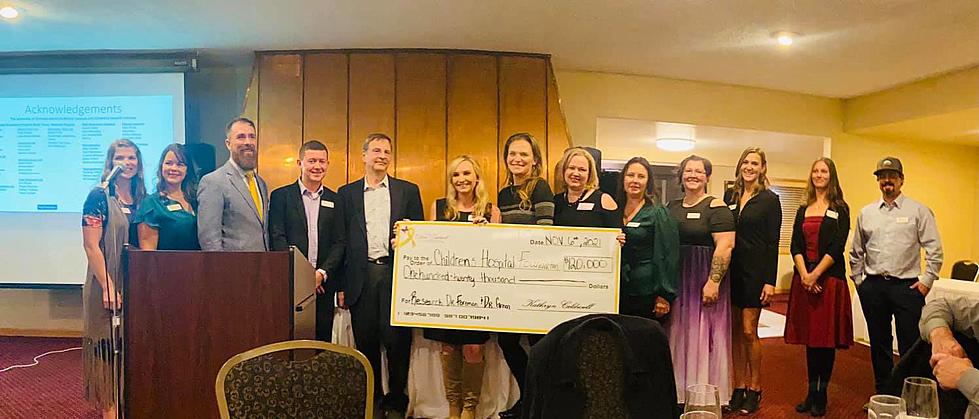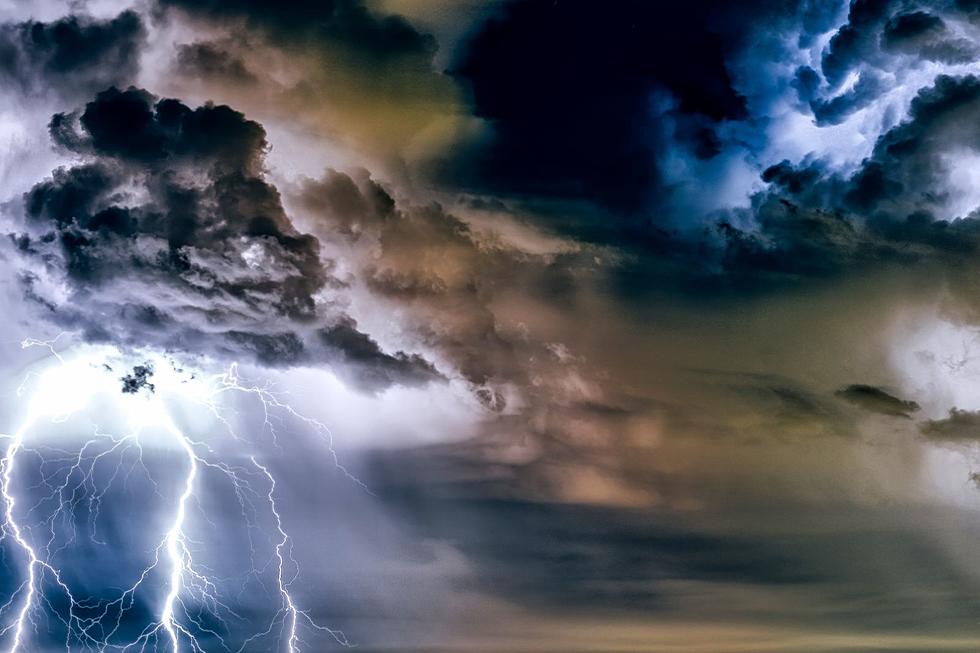
Olivia Caldwell Foundation Donates $120K to Children’s Hospital Colorado
It was, inarguably, the worst thing that could ever happen to a parent. When Katie Caldwell-Burchett was told that her 4-month-old baby girl, Olivia, had brain cancer, time stood still. 16 months later, Olivia passed away and Katie was faced with a choice.

The first choice was to allow herself to be enraptured by her grief. She could have let the pain, the sadness, the anger, the not-fair-of-it-all consume her. That would be the easy choice, and nobody would blame her. But there was another choice, and that choice was a little harder. That choice took a little (no, a lot) more strength. That choice involved wiping away the tears, leaning on friends, family, and the community, and creating something that was bigger than her; something that would honor Olivia and maybe, just maybe, help somebody else.
So she made a choice and, in that choice, the Olivia Caldwell Foundation was born.
"I felt really compelled to want to do something to honor my baby," said Katie Caldwell-Burchett, the founder of the Olivia Caldwell Foundation. "She didn't even make it to her second birthday. I wanted to do something to create meaning out of what happened to her, so we've been funding pediatric cancer research ever since."
The Olivia Caldwell Foundation was founded in November of 2013 and, in that time, they have raised an astronomical amount of money for pediatric cancer research.
"Our mission is to fund life-saving pediatric cancer research and programs that improve the lives of children battling cancer and other serious diseases in Wyoming and surrounding areas," their website states. "We do this by funding innovative pediatric cancer research via unrestricted funds given to world-renowned researchers who are dedicated to the development of more effective and less toxic treatments for children with cancer."
The foundation started out as just a means to fight back against cancer, but since then, it has expanded to include other medical issues as well.
"The last eight years we've given $645,000 to pediatric brain cancer research," Caldwell-Burchett stated. "Most recently, we have expanded our mission a little bit to be able to help other families in Wyoming that have children with other complex medical needs."
Throughout the years, The Olivia Caldwell Foundation has developed a number of partnerships throughout Wyoming and beyond, all designed to assist families with medical expenses, childcare, food assistance, and more. The foundation is able to assist Wyoming families in a number of ways to help take some of the burden off of what is already a devastating situation. They also act as liaisons for Wyoming families and pediatric doctors throughout the Rocky Mountains.
"We do that through funding a pediatric specialty outreach clinic, which is here in Casper," Caldwell-Burchett offered. "The clinic brings up doctors from Children's Hospital Colorado on a regular basis to see kids here for cardiology, endocrinology, pulmonology neurology, and GI issues. We also fund a patient advocacy program, along with The Orr's Hope Foundation. That's really meant to just help connect families to resources that can support them when their child is sick."
That's all in addition to the funding they provide for pediatric cancer research and, on Saturday, November 6, The Olivia Caldwell Foundation donated their "biggest check ever" to the Children's Hospital Colorado. The check was for $120,000.
"Every year for the last probably five years, we've done an annual donor appreciation dinner, and it's really just a night to say 'Thank you,' to people who've supported us throughout the past year or more," she said. "It's a chance for them to learn about the research they've been funding, so our lead researcher from Denver always comes up and gives a presentation about what he's been working on this year."
Caldwell-Burchett said donors also had the opportunity to hear from one of the neuro-oncology researchers, as well as a pulmonology doctor that actually sees the children at the clinic. The night also features comments from a few of the families who benefit from the patient advocacy program.
At the end of the night, the team reveals how much money has been donated to research funds.
"We've actually been getting large research donation checks for the past eight years, and we always showcase them in October or November, right around the time of year that my daughter passed away," she stated. "It's been helpful to the research team if we just give them one big check each year that they can then use to do any startup research for the upcoming year. One of the things with pediatric cancer research is that it's not funded well. For a research team to receive any of the really limited funding that's available from the National Cancer Institute, they have to basically have already done a lot of the work and be able to prove that their research project is ready to yield something pretty significant. So, our research checks are able to be devoted to getting those startup research projects off the ground. That way, they can then go to the National Cancer Institute later and get those really big, million dollar grants."
As they said on their Facebook post, this was the largest single sum of money they have donated to the Children's Hospital Colorado and, according to Caldwell-Burchett, it could not have happened without the support of the community.
"I would just tell everyone thank you so much for all of your continued support," she stated. "This donation wouldn't have been possible if it wasn't for the support of so many people. The research we've funded over the past 8 years has led to significant breakthroughs in cancer research, including the cure for the type of cancer that killed my own daughter."
Olivia would have been 8 years old this year. When a child dies, any child for any reason, it is a tragedy. It's something that makes up look towards the sky and ask whomever may be listening, 'Why?'
We may never know that answer, but the beauty that we can find in tragedy comes from how we move forward. Katie could have chosen to be angry. She could have cursed God or the universe or whomever and lived her life in sorrow. But she didn't do that. She chose to take her pain and transform it into beauty. She took her weakest moments and turned them into strength. And she chose to use Olivia and her story, their story, to make the world around them a better place; one with hope, with grace, and with love.
It was a good choice.
Wyoming A to Z
More From K2 Radio








